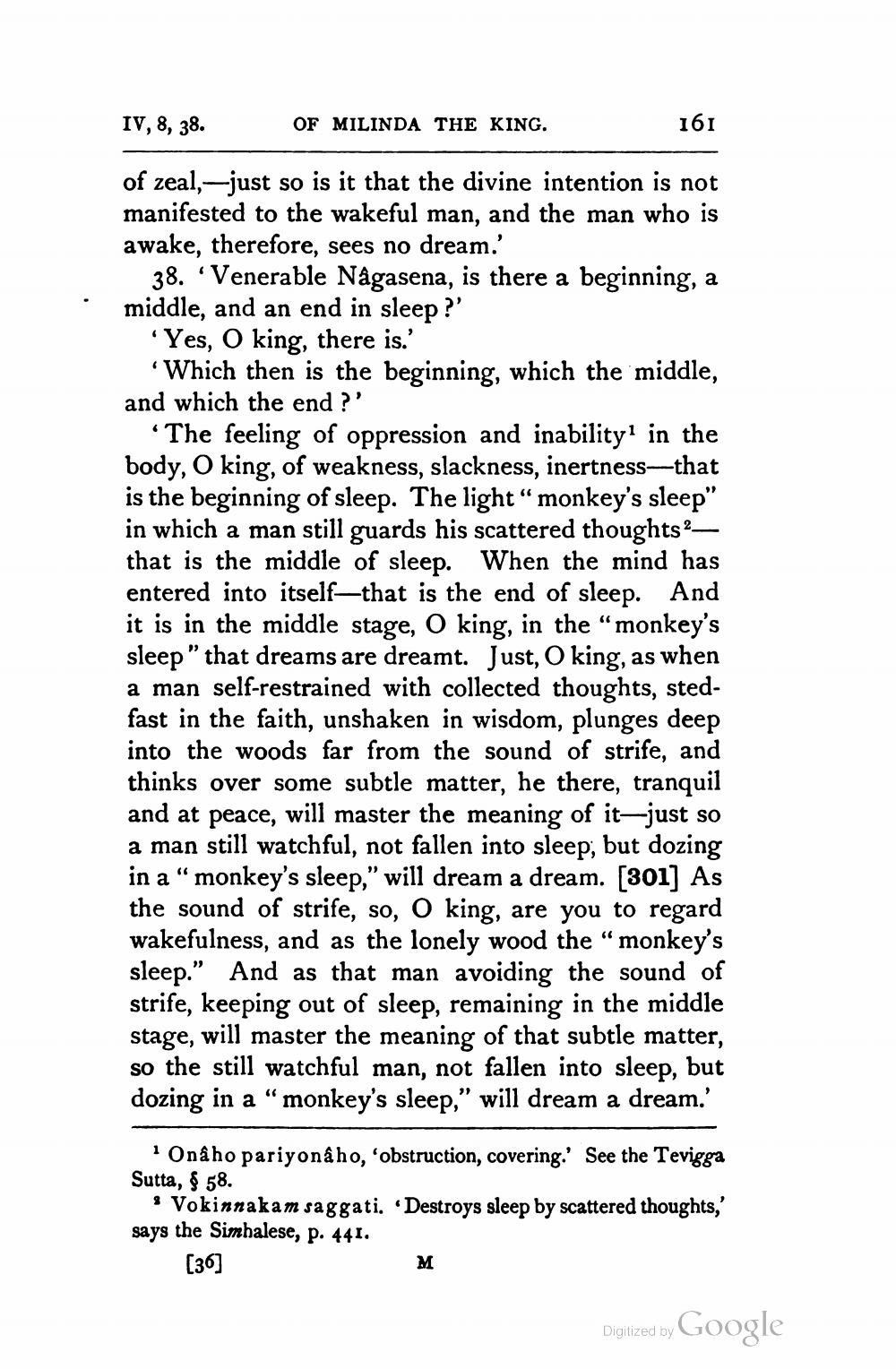________________
IV, 8, 38.
OF MILINDA THE KING.
161
of zeal,-just so is it that the divine intention is not manifested to the wakeful man, and the man who is awake, therefore, sees no dream.
38. Venerable Nagasena, is there a beginning, a middle, and an end in sleep?' 'Yes, O king, there is.'
Which then is the beginning, which the middle, and which the end ?'.
*The feeling of oppression and inability in the body, O king, of weakness, slackness, inertness—that is the beginning of sleep. The light“ monkey's sleep" in which a man still guards his scattered thoughts 2– that is the middle of sleep. When the mind has entered into itself—that is the end of sleep. And it is in the middle stage, O king, in the “monkey's sleep" that dreams are dreamt. Just, О king, as when a man self-restrained with collected thoughts, stedfast in the faith, unshaken in wisdom, plunges deep into the woods far from the sound of strife, and thinks over some subtle matter, he there, tranquil and at peace, will master the meaning of it,just so a man still watchful, not fallen into sleep; but dozing in a “monkey's sleep," will dream a dream. [301] As the sound of strife, so, O king, are you to regard wakefulness, and as the lonely wood the "monkey's sleep.” And as that man avoiding the sound of strife, keeping out of sleep, remaining in the middle stage, will master the meaning of that subtle matter, so the still watchful man, not fallen into sleep, but dozing in a "monkey's sleep," will dream a dream.'
Onaho pariyonâ ho, 'obstruction, covering.' See the Tevigga Sutta, $ 58.
* Vokinnakam saggati. Destroys sleep by scattered thoughts,' says the Simhalese, p. 441.
[36]
м
Digitized by Google




